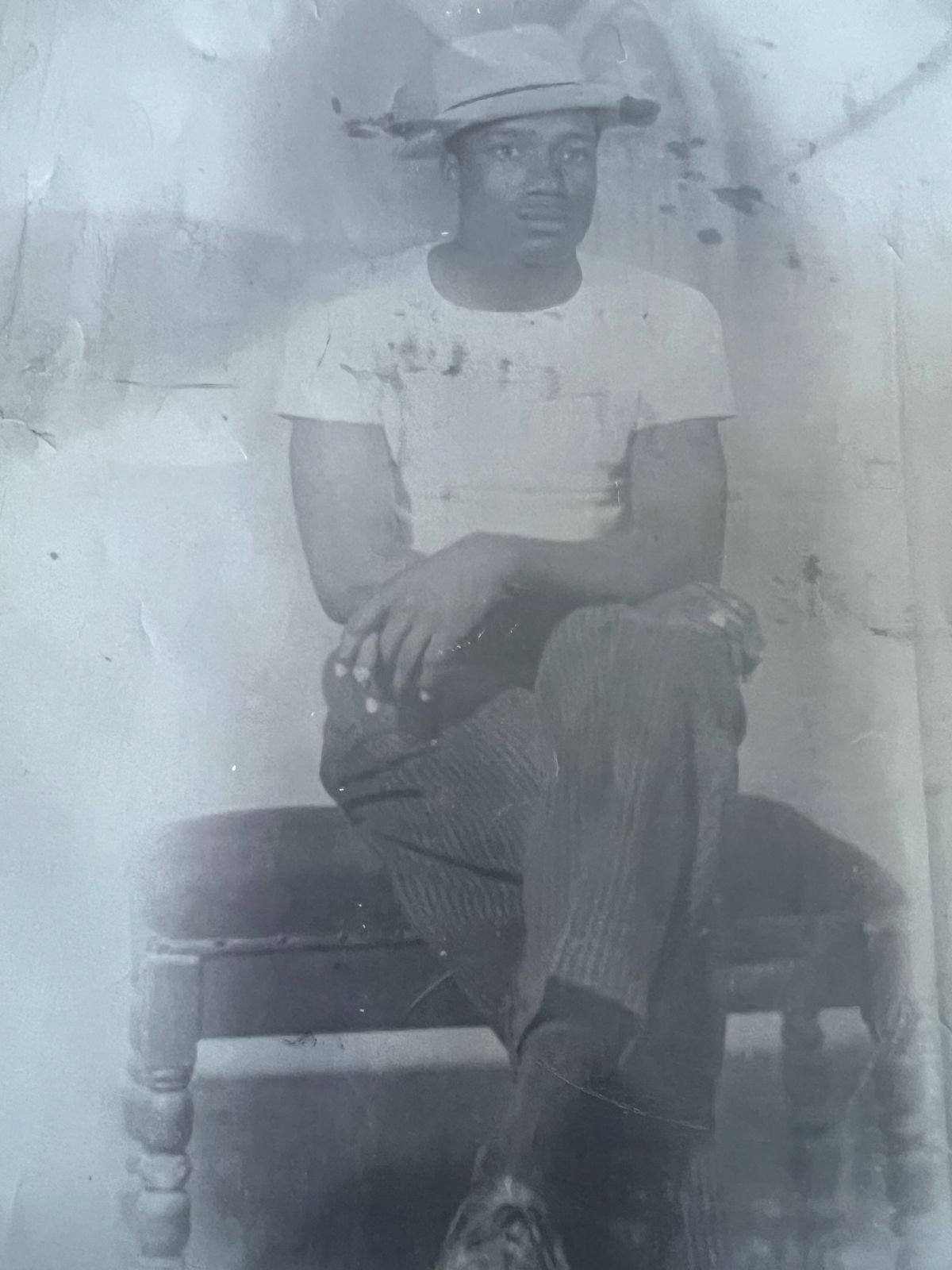Leonard McCowin
Leonard McCowin was a 21-year-old veteran of World War II. He worked on a farm and at a cafe in Center, Texas.
Case summary
Incident

According to testimony collected in an NAACP investigation, as well as contemporaneous newspaper reporting, Leonard McCowin was 21 and a World War II Army veteran who worked on a farm and at a cafe in Center, Texas. On November 4, 1947, he left a building in downtown Center, carrying a .22 rifle. He had recently purchased the gun to hunt rabbits. As he walked down the street, he ran into an acquaintance, Laura Smith. The two approached a street corner, and Brian McCallum, a white man who served as marshal in the city police department, approached them. He asked McCowin where he was going. According to Smith’s recollection, recounted in an affidavit two weeks after the incident, McCowin replied either that he was going home or that he was headed out to go hunting. McCallum asked to see McCowin’s gun. After checking the gun and determining that it was not loaded, McCallum struck McCowin below his ear on his neck with the butt of the rifle, “using it as a bludgeon,” according to the NAACP investigation. McCowin collapsed and Smith screamed. Another witness, Odell Gardner, asked McCallum if he could transport McCowin to the hospital. McCallum allegedly replied, “Hell no, he can die just as good there on the street as he can in the hospital.” McCowin’s death certificate lists his cause of death as a homicide, specifically a “broken neck.”
Aftermath
A November 28, 1947 story in The Call newspaper, a weekly publication out of Kansas City, reported that McCallum had likely mistaken McCowin for the victim’s brother, who had recently been beaten by a mob after an altercation with a white man at work. McCowin’s death was recorded as a homicide on his death certificate. The Shelby County sheriff, T.J. Sample, required a $2,500 bond from McCallum. A grand jury investigated but did not indict McCallum. “It seems that the Grand Jury felt that if they should indict him it would give the Negroes too much leeway in that community,” according to a report by W.N. Harkness, an attorney representing McCowin’s parents. Harkness submitted the report to A. Maceo Smith, secretary of the NAACP’s Texas State Conference.
Harkness, on behalf of Ezekiel McCowin, Leonard McCowin’s father, and with the support of the NAACP, filed a civil suit against both McCallum and his bondsman, Winkie Warr, for $10,000 in lost wages from McCowin’s death. Harkness argued that McCowin’s elderly parents relied on him financially and they should be compensated for the loss of their son. In a letter to Smith, Harkness acknowledged that he did not expect to receive funds from McCallum – a “poor man” – but that he filed the suit in pursuit of justice in Shelby County and to prevent the creation of “virtual tyrants” who obtained power through “small political office” and wielded that power to kill “innocent and unwary people merely because they have the physical power to do so.”
On November 5, 1948, a district court judge in Shelby, Texas dismissed Ezekiel McCowin’s case and ordered him to pay the defendant’s court fees. The local NAACP shared the details of the case with Thurgood Marshall, then the head of the NAACP Legal Defense Fund, suggesting that the case should be investigated by the Department of Justice. The Department of Justice did not investigate the case, nor did it direct the Federal Bureau of Investigation to pursue an investigation.
Case summaries are compiled from information contained in different sources, including, but not limited to, investigative records, arrest reports, court filings, census records, birth and death certificates, transcripts, and press releases. In many cases, the records contain contradictory assertions.


